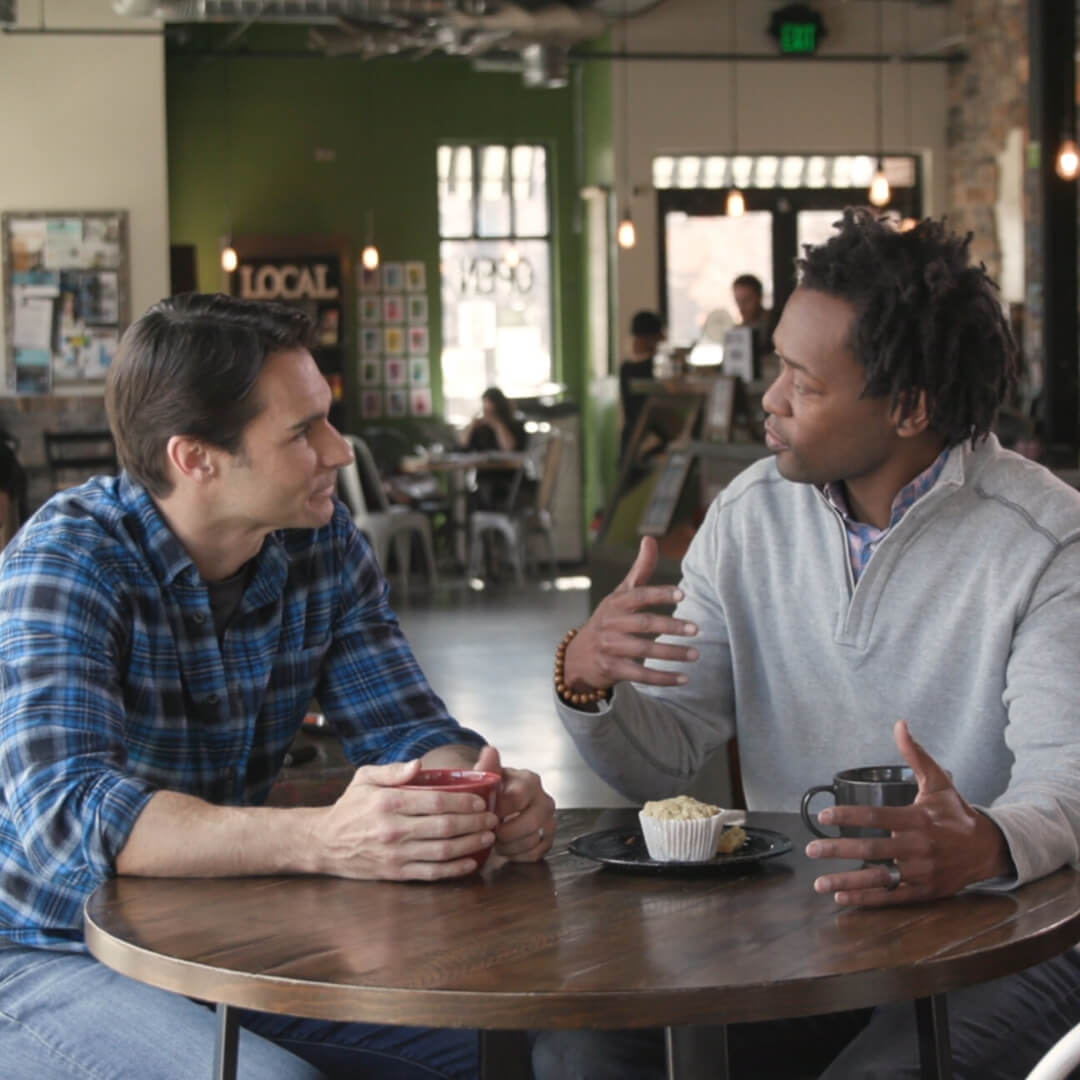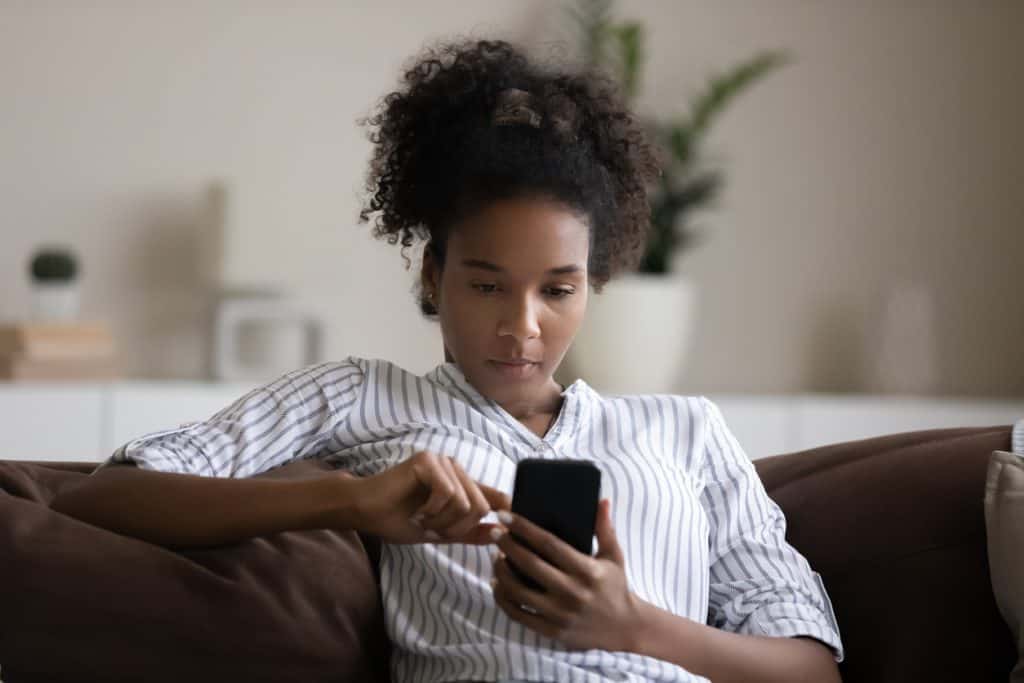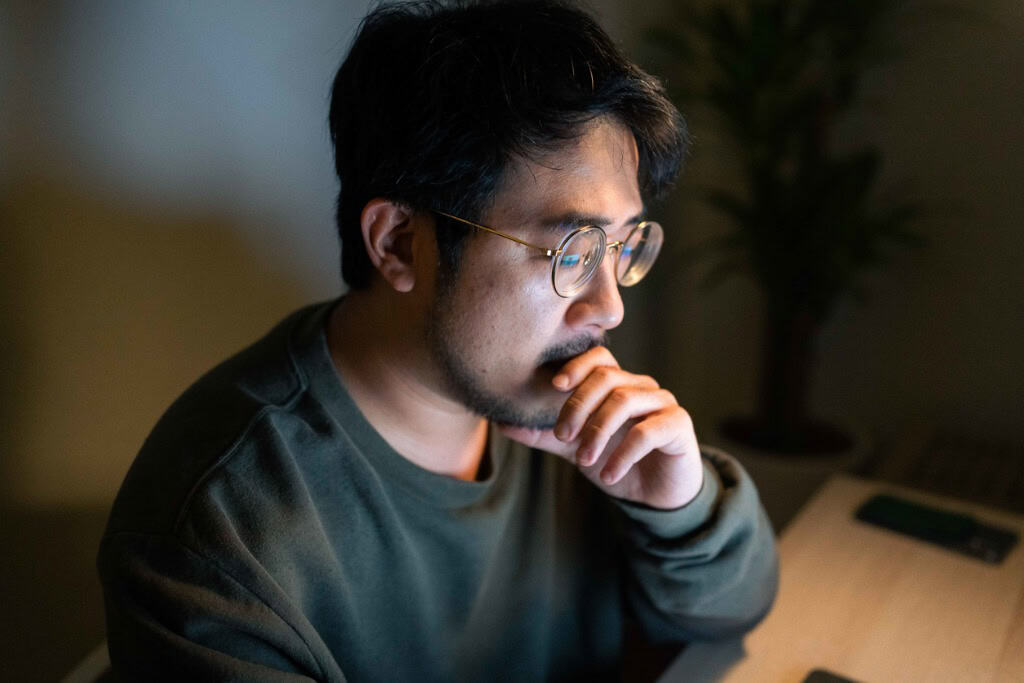Being an ally isn’t easy. We sign up to be allies because we want to support our friend in their battle with porn. They trusted us enough to reach out for help, after all, and we want to make sure we aren’t letting them down.
Still, as much as we want to help, accountability conversations can be awkward. What do you say when you see porn on your friend’s accountability report? What do you say when they admit they binged all night? Praising wins is easy enough, but dealing with setbacks can be tough. “I’m sorry,” doesn’t always feel like enough.
Here’s some good news: You don’t have to fix everything or find the perfect words to solve your friend’s porn problem. Sometimes, just being a caring, non-judgemental presence and asking some helpful questions (rather than offering answers) is enough.
Here are five practical ways to improve your accountability conversations and offer the support your friend needs in their struggle.
1. Maintain non-judgemental behavior.
If you’re trying to help someone quit porn, chances are you know that porn is harmful and wrong. So when you see porn on a report, or your friend admits to it, it can be natural to feel disappointed. You might even want to berate them for their weakness or lack of commitment. Resist that temptation to judge! It won’t solve anything, and it can do a lot more harm than good.
Judging your friend’s experience can short circuit helpful and healing conversations. It assumes you know what happened, or why they did what they did, when you really don’t. It also reinforces toxic shame and your friend’s belief that they can’t trust anyone.
Many people also don’t realize that relapse is part of the recovery process. Hopefully those relapses slowly diminish before being extinguished, but relapses will almost always happen. Remember that your friend reached out to help because they realized porn was a problem in their life. They couldn’t quit on their own because porn is really hard to quit. Be thankful for their trust and receive them with love and openness. It can be tremendously healing.
Related: How to Be the Best Ally Ever
2. Pay attention to your environment and body language.
Though it isn’t always possible, it’s ideal for accountability conversations to take place in person. When they do, pay attention to your environment. Choose a calm, quiet, and private place for your meeting. Talking about porn in a public place where you can be easily overheard can end an accountability conversation before it begins. Seek an environment that facilitates trust and safety.
Next, watch your body language and what it communicates. We are embodied beings, and our bodies say just as much as our words. For example, don’t lean back with your arms crossed. This communicates defensiveness and judgement. Rather, lean in with your arms in a relaxed position. This communicates openness and trust.
Finally, pay attention to your facial expressions. Maintain eye contact and seek to communicate warmth and empathy. A deadpan expression or eyes that wander around the room might make your friend think you are bored and uninterested in what they have to say.
3. Ask open questions.
One of the biggest mistakes allies make is assuming they have to be an expert and have all the answers. This isn’t true, and in many cases, it isn’t even possible. Get curious and ask questions instead. It can open up many more avenues of conversation than pre-packaged answers that your friend likely already knows.
Good questions are open rather than closed. Closed questions are questions that can be answered with a yes or no. Open questions are open-ended and give space for your friend to formulate their own answers. Choose open questions.
For example: “Were you bored when you looked at porn?” is a closed question. It can be answered with a simple yes or no.
“What were you feeling right before you went to that porn site?” is an open question. It can’t be answered with a yes or no but requires critical thinking and self-examination to answer.
Related: When Porn Is on the Report: 8 Steps for Allies
4. Listen carefully.
There are two ways to listen: to respond or to understand. Listening to understand is what makes for a helpful accountability conversation. And listening well means actively engaging with what your friend is saying, seeking to discern the deeper meaning and feelings behind their words. Think of yourself as a detective helping your friend unpack his or her thoughts and feelings not only about porn, but also about their life in general.
To listen actively, keep your mind from wandering and give your friend your complete attention. Don’t judge their experience but be open to what they say. Show that you’re listening by nodding, smiling, and using small verbal communications, like “mhm” or “right,” to let your friend know you’re following what they’re saying.
Next, respond to them by reflecting their thoughts and emotions. For example, rephrase what they are saying with comments like, “What I’m hearing you saying is…” or “It sounds like you were thinking…”.
This will help them know you are paying attention and allow them to further clarify their experience.
5. Get comfortable with silence.
Silence can be awkward, but it can also be healing, especially when we are sharing painful or embarrassing parts of ourselves. Embracing your friend with a warm silence might be just what they need.
Remember that your friend is feeling vulnerable. Talking about our feelings is rarely easy, and it requires a great deal of courage. Resist the urge to blurt out your own opinions, thoughts, or even questions, especially if they shared something especially painful.
Silent listening can be an act of love, and there aren’t too many places to find it these days. Taking time to simply be present, even in silence, can be a powerful way to help.
Your support can make all the difference.
Most allies think they need to be experts on porn recovery in order to help. As a result, many accountability conversations are awkward or plain unhelpful. But this simply isn’t true. Sometimes the best way to help is to just be there, helping your friend process their feelings without judging their experience. You aren’t a doctor writing prescriptions; you’re a friend offering support and genuine concern.
If your accountability conversations have stalled, try these five tips. Put simply: care and get curious. It could make all the difference and be just what your friend needs to move forward.








Regarding point number 1- relapse is NOT part of recovery. Relapse is part of the acting out cycle. Sobriety is the first step in recovery. If a porn addict is having relapses, then he or she is not getting the proper treatment or learning new coping mechanisms. I think it does a huge disservice to addicts and spouses when they’re told to expect relapses and that it’s ok.
That is OK
Hi Karen,
I’ll be honest, I was a little upset by your comment at first because I found it really reassuring when the article mentioned our relapse was part of the recovery process. For me, it certainly feels like I have had to relapse and still have to relapse a few times before things will get better…
But after reading what you wrote, I think I’m starting to understand what you mean. There’s a lot to take away from your words, and from where I’m at in my journey, all I can think of is, Then what do I need to do differently?? Perhaps you yourself have experienced or know someone who has experienced this very real struggle. I sincerely do appreciate what you had to say. I will continue thinking about it!